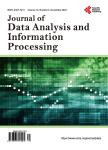Backward Support Computation Method for Positive and Negative Frequent Itemset Mining
Backward Support Computation Method for Positive and Negative Frequent Itemset Mining作者机构:Department of Computer Science and Engineering Jatiya Kabi Kazi Nazrul Islam University Mymensingh Bangladesh
出 版 物:《Journal of Data Analysis and Information Processing》 (数据分析和信息处理(英文))
年 卷 期:2023年第11卷第1期
页 面:37-48页
学科分类:08[工学] 0812[工学-计算机科学与技术(可授工学、理学学位)]
主 题:Data Mining Positive Frequent Itemset Negative Frequent Itemset Association Rule Backward Support
摘 要:Association rules mining is a major data mining field that leads to discovery of associations and correlations among items in today’s big data environment. The conventional association rule mining focuses mainly on positive itemsets generated from frequently occurring itemsets (PFIS). However, there has been a significant study focused on infrequent itemsets with utilization of negative association rules to mine interesting frequent itemsets (NFIS) from transactions. In this work, we propose an efficient backward calculating negative frequent itemset algorithm namely EBC-NFIS for computing backward supports that can extract both positive and negative frequent itemsets synchronously from dataset. EBC-NFIS algorithm is based on popular e-NFIS algorithm that computes supports of negative itemsets from the supports of positive itemsets. The proposed algorithm makes use of previously computed supports from memory to minimize the computation time. In addition, association rules, i.e. positive and negative association rules (PNARs) are generated from discovered frequent itemsets using EBC-NFIS algorithm. The efficiency of the proposed algorithm is verified by several experiments and comparing results with e-NFIS algorithm. The experimental results confirm that the proposed algorithm successfully discovers NFIS and PNARs and runs significantly faster than conventional e-NFIS algorithm.



